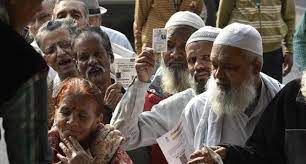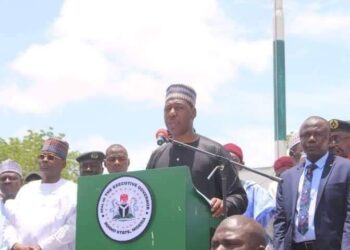The revelation that one senior citizen dies every 20 minutes from falling may have gone unnoticed by many Nigerians but it has once again brought to the fore, the urgent need to address the plight of the elderly in our society. A simple calculation shows that three aged people die every hour, 72 on daily basis and 26,280 yearly.
A pain expert, Dr. Eze Nnamdi, who made the disclosure said that studies had shown that senior citizens or elders aged 65 and above are prone to falling more frequently than young people.
The physiotherapist noted that a fall is a complex phenomenon involving many factors not limited to weakness of the muscles but also coordination of the brain, stressing that it is a common cause of morbidity and disability in the elderly.
He further said, “It is not unsurprising that as we age, our muscles begin to weaken and not become as strong as we would love them to be. Vision also begins to fail at some point, thus increasing the propensity to fall. These factors play a huge role especially when an elder is walking on an irregular surface.”
Dr. Nnamdi also observed that falls could result from acute illness or adverse drug reactions, and advocated the use of walking sticks for the elderly.
The expert, however, noted that people “do not want to be associated with it because it is a sign of (physical) weakness,” even though the habit of using walking sticks helps to minimise avoidable falls.
The plight of the nation’s senior citizens is further compounded by societal neglect. Government is not helping matters with regards to the shoddy treatment meted out to the senior citizens that have paid their dues. Many of them on retirement are known to die of avoidable ailments, frustration and starvation because of delay or irregular payment of their monthly stipends.
Besides corruption which has permeated the public service, one other factor that fuels the invidious crime is the propensity of those in service to cut corners and amass huge wealth that would secure their future and that of their families.
As we have stated in our previous editorials on caring for the elderly, there is the need for Nigerians to have a rethink about being their elders’ keepers. Caring for aged relations has been an immanent African culture.
Unfortunately, the times have changed. Young people are no longer available to look after their old ones. Most advanced countries of the world at the point of their development were caught by this dilemma. Consequently, they had to come up with the idea of setting up the facilities, well equipped and manned by specially trained personnel.
The tragedy today is that we are losing the African custom because we have been caught in a clash of two worlds. One key factor that brought about the establishment of homes for the elderly in western countries has crept into Africa: personal commitments which make the youger ones unavailable to cater for the elderly relations most of who reside in villages.
Young people are constantly migrating from the rural to urban areas in search of the proverbial Golden Fleece, thus leaving their aged parents and relations to fend for themselves in their old age. Besides, not many city dwellers are making it owing to joblessness, while the well-to-do ones are too busy to care for their elderly parents in the hinterlands who toiled in their active years to make life meaningful for them later in life.
Old age comes with its own peculiar challenges and traits which geriatricians refer to as second childhood. The circumstances that necessitate the advanced countries to set up old people’s homes could be traced to the longer life span of their citizens, which throws up a huge population of the elderly. Nigeria also has its own fair share of the aged persons despite our low life expectancy.
We recall that in 2009, the Senate passed a Bill for the establishment of the National Agency for Elderly Persons (NAEP) which was intended to provide support for senior citizens in dire need of special care. The Bill was not accented to by the Yar’Adua administration. However, in 2018, the Buhari administration signed the Bill into law but the implementation has been pursued rather desultorily, hence there is nothing concrete to show for its existence.
All tiers of government should consider as a matter of urgency the setting up of old people’s homes. There is also the need for the provision of geriatric departments, as there are paediatric departments handling children’s cases in our various hospitals, to provide special care for the elderly ones. The argument that such arrangement is a negation of our family value system is no longer tenable. Such institutions will be in a better position to properly take care of them. Gradually, they will begin to accept the homes as their home away from home. Our aged citizens deserve to live their lives to the fullest and devoid of the stress associated with longevity.




